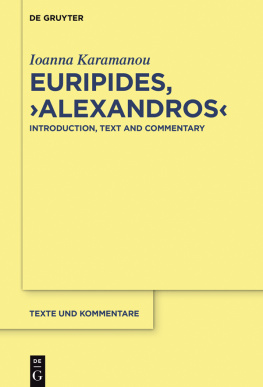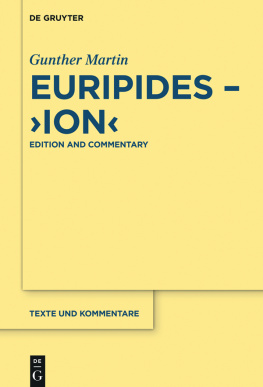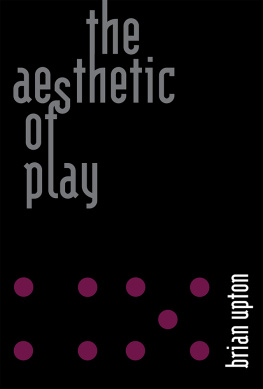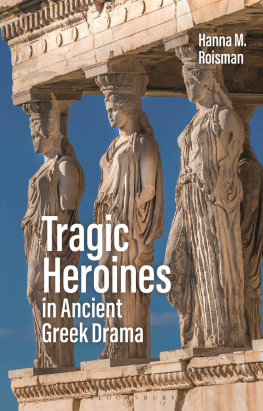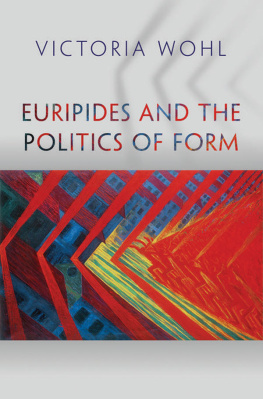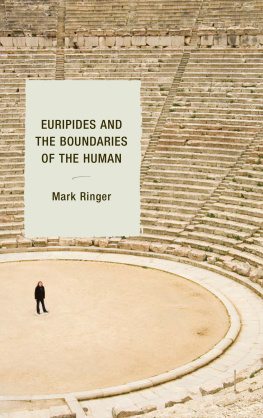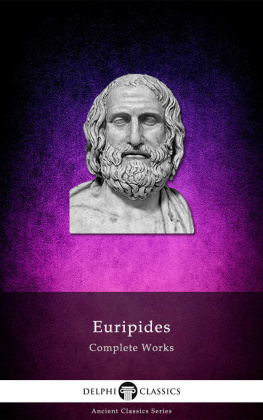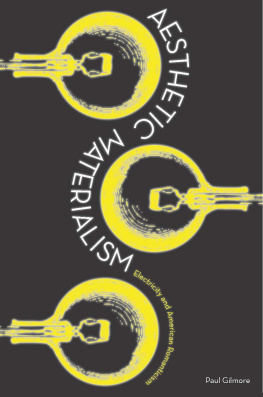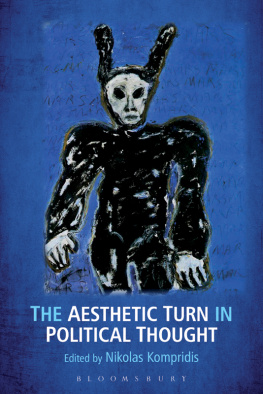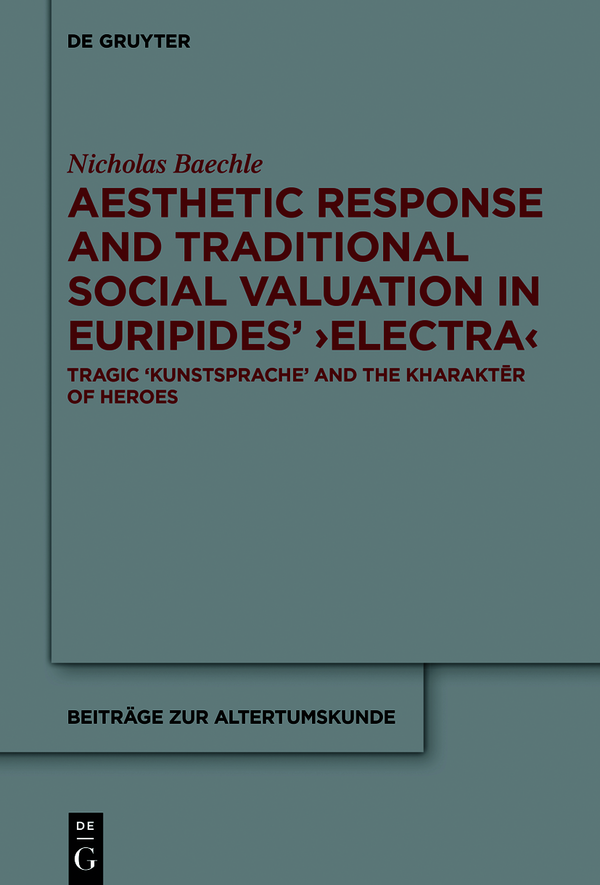Beitrge zur Altertumskunde
Edited by
Susanne Daub
Michael Erler
Dorothee Gall
Ludwig Koenen
Clemens Zintzen
Volume
ISBN 9783110613100
e-ISBN (PDF) 9783110610994
e-ISBN (EPUB) 9783110611311
Bibliographic information published by the Deutsche Nationalbibliothek
The Deutsche Nationalbibliothek lists this publication in the Deutsche Nationalbibliografie; detailed bibliographic data are available on the Internet at http://dnb.dnb.de.
2020 Walter de Gruyter GmbH, Berlin/Boston
For Uschi, again
Acknowledgements
Thanks are due to Uschi Appelt, Jared Bates, Victor Bers, Summer Brown, Barbara Burrell, Martin Hose, Sean O Neill, and Cori Oney. My students, Cori and Summer, may not even be aware that they helped out along the way, by being perceptive and observant. The others have chosen to respond generously with their time and expertise and improved the text in many ways. Most of all, I would like to thank my wife, Uschi. As always, she has been patient with me and supportive; and her insight and acuity have helped me formulate and think through the interpretative problems this book attempts to address.
Introduction: The complex analogy between social appearance and stylistic presentation and the provocations to cultural self-awareness played out in Euripides Electra
When the Old Man made his entrance at the beginning of the second episode,
,
,
,
.
,
.
When this old slave entered, it would have been impossible not to notice the contrast; he presents himself as precisely who he is, old, feeble, dressed in rags, and, seemingly, of no account:
,
, ;
.
.
( ),
,
,
.
.
.
The entrance has been and is motivated; an old retainer, Agamemnons former paidagogos, has been sent for to bring food and wine for the entertainment of the guests of the Autourgos and Electra, and the audience was reminded of his purpose in this entrance speech (40419; 494500). Yet in conjunction with the preceding ode, the immediate dramatic effect is the juxtaposition of Achilles idealized heroism with, in Athenian terms, this most mundane and ordinary, not to say contemptible, of characters.
Stylistically, too, the audience was presented with a strange, and somewhat disorienting, sequence of effects. The first part of the ode is oddly processional and festive, and it is enhanced with highly pictorial, dithyrambic language. The audience was pulled into enjoyment, then, of stylistic effect and simultaneously invited to enjoy an idealized picture of youthful heroism.
At the same time, they were made aware of the odes dithyrambic style as a style, partly because this kind of dithyrambic turn was marked as a stylistic innovation, as Aristophanes parody in Frogs makes clear. so that his use of the Kunstsprache produces a puzzling effect similar to, and partly determined by, the audiences consciousness of the dithyrambic language of the ode as stylized or stylish. The audience is pushed to self-conscious questions about the style as a style and the character as a character: How is this new, and rather odd, characters style of poetic language appropriate as a mode of verbal self-presentation? And are his stylistic pretensions discontinuous with his markedly non-heroic status and characterization?
In terms of aesthetic expectations, the feeling of disjunction, of a lack of fit between styles of poetic language and the characters to which they are supposed to belong either by analogy, in the ode, or directly, in the following scene amounted to a provocation for Euripides audience, as well as a puzzle. In terms of social expectations, the play up to this point has been similarly provocative, and perhaps troubling. There has been a thematic focus on an assumed continuity between, on the one hand, the social appearances and self-presentation that indicate aristocratic birth,
These concurrent and provoking challenges to the audiences social and aesthetic expectations are interconnected and are brought into play together in the episode the Old Mans entrance introduces (488698), an episode which continues through the delayed recognition of Orestes by Electra and the planning of the murders of Aegisthus and Clytemnestra. In the prologue and the preceding The net result is that both sides of this complex analogy are problematized and that, at a metapoetic level, the analogy as such is exposed and its nature and basis made an object for the audiences self-conscious reflection.
The thesis sketched in here takes its cues from questions posed by Jauss about the interrelation of culturally specific aesthetic and social expectations and from his project of trying to generate literary history and interpretation that could account for both.
I The initial presentation of the Old Man: Characterization and stylistic presentation of an oddly mundane, even anti-heroic, tragic character
In order to develop and substantiate these larger claims, it is first necessary to return to the representation, both theatrical and stylistic, of the Old Man. As the old slave enters, he describes his progress uphill and gives the audience a vivid impression of his decrepitude:
,
, ;
.
.
Perhaps the actor represented, in a more or less stylized way, his halting and painful progress; he may have bent over and given some visual impression of the effort his character has to make. However we imagine his acting, though, these lines cued the audience visually and focused their imagination not just on the idea of his feebleness but on the appearance of his body. in the weakness of old age. Yet the description of this old mans body is unparalleled.
In other plays there are references to feet, knees, legs, etc. as part of the description of such slow and feeble progress, but here attention and imagination are focused on the body of the Old Man in a pictorial, almost grotesque way.
So, the description of the Old Man would have struck the audience and called attention to itself.
In this passage, then, after the Old Mans self-identification as Agamemnons former paidagogos (488) The second feature of his characterization, closely connected to the first, is that he is dressed in rags:
.
This kind of description is also unparalleled, for a servile character. The audience would have expected ragged costume in a play of Euripides to be associated with a hero or king who had fallen into misfortune.
The combined effect of all three factors the description of his body, his explicitly marked status, and the reference to his ragged clothing is to make evident the choices made in creating and presenting the character. Just what kind of character has Euripides constructed, and how is he to be categorized?
This would have been a puzzling question for an Athenian audience. For modern readers, even framing the question may be difficult. Finding the right conceptual categories and avoiding anachronistic assumptions requires careful thought. As often with Euripides, describing tonality and theatrical effect is not easy. One approach that has been taken repeatedly, in regard to the first part of the Electra as a whole, is to talk in terms of realism.
( ),
,
,
.
.
In this respect, the tonality of the scene follows from and harmonizes with the preceding episode. But the contrast between the mundane and the heroic is sharpened at this juncture in the play through the contrast between the idealized


